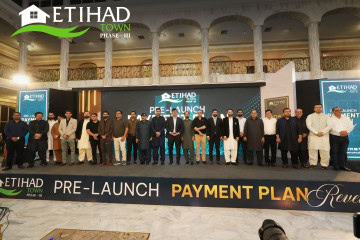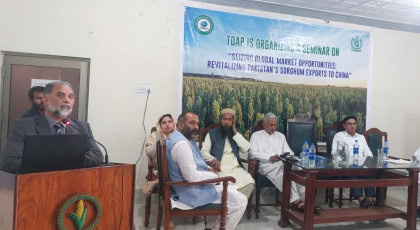Pakistan’s IT sector is projected to reach $20 Billion in FY 2025 with exports expected to cross $4 billion as anticipated targets have been crossed FY 2025 stating 27% YoY growth, with January IT exports hitting $313 million, as new policies fuel export confidence. The optimism is high as per stakeholders and among many IT Tycoons, Burhan Mirza has been on the frontlines to share his blueprint paving a path to the projected valuation of $20 Billion IT exports in Pakistan.
The IT services market alone is forecasted to generate $2.63 billion, while Business Process Outsourcing (BPO) is anticipated to dominate with over $900 million in revenue. Yet, amid the upward trajectory, industry leaders are cautioning that scale without strategy could fall short.
The serial entrepreneur, Burhan Mirza, serves as an investor in 15+ IT startups in Pakistan with a market cap of over $100 million, believes the numbers are promising – but the real work lies in the execution of things.
“Talent is already here. It just needs to be channeled, We need to focus less on statistics and more on structure — the kind that helps youth not just enter the system but evolve within it.” says Mirza.
In January 2024, Dr Umar Saif – Former caretaker minister of IT and Telecom announced PayPal’s entry in Pakistan’s market through strategic alliance and through international payment gateways. However, the news turned out to be mostly rumours and the government couldn’t follow through the course, so the idea was dropped as meetings and discussions with the entity were unsuccessful.
Despite the ambitious target to reach $20B in exports, Pakistan still faces many challenges that halt its growth.
Insufficiency of essential resources such as skilled workforce, dependable infrastructure, and tools remains a critical hurdle. Another crucial day-to-day struggle that most people face is limited access to international payment gateways and merchant accounts for freelancers and startups, making it difficult for many to participate in the global market. Without addressing these systemic issues, scaling Pakistan’s IT exports to such heights will remain a distant dream.
Drawing on global comparison, Burhan Mirza also highlights what Pakistan lacks in terms of international standards to achieve the $20 billion projected evaluation.
Burhan continues by saying “The Entrepreneurial Ecosystem in the US stands on three pillars, vast network of resources, venture capitalist and mentorship. We are still building our base and this is where policy, people and platform must align ”
Burhan adds on by mentioning that it’s a 360 art to create IT entrepreneurs in Pakistan, as handing over capital without mentoring is detrimental to establishing powerful IT businesses in Pakistan.
Burhan Mirza’s response to this gap is centered around human and tech alignment with the structure and standards of international IT companies. His IT institute in Karachi – Skills360 works to educate people of all ages regarding IT skills that help them secure a job bridging the gap between tech and Pakistan. His Co-founded venture The Coach360 focuses on enabling better career choices in all fields irrespective of age and career levels helping career aspirants find a suitable field in their careers. Both ventures create a balanced tech-friendly ecosystem in Pakistan paving the path for reaching $20 billion It growth valuation.
“We cannot achieve ground breaking milestones in Pakistan’s IT sector unless and until we educate our population on IT skills and help them find a career path that aligns with Pakistan’s mission” – said Burhan.
Burhan also underscores the importance of reducing entry barriers for first-time entrepreneurs and new graduates. “On my way here, I asked our driver about his side work — turns out, he’s doing QA for a software house. That tells you talent isn’t the issue. It’s access. If we reduce friction and make business easier to enter — we won’t just reach $20 billion, we’ll cross it.”
However, Burhan is quick to recognize that the responsibility doesn’t only fall on the government level, rather it’s a stance the entire nation should take and adapt IT in their lives. “Yes, policy needs to improve. But the private sector has to step up too. There’s no room for legacy thinking anymore. This is a fast-moving global market — and we’re racing against ourselves.”
Do you think Pakistan can achieve the target or does it sound too far fetched?



















